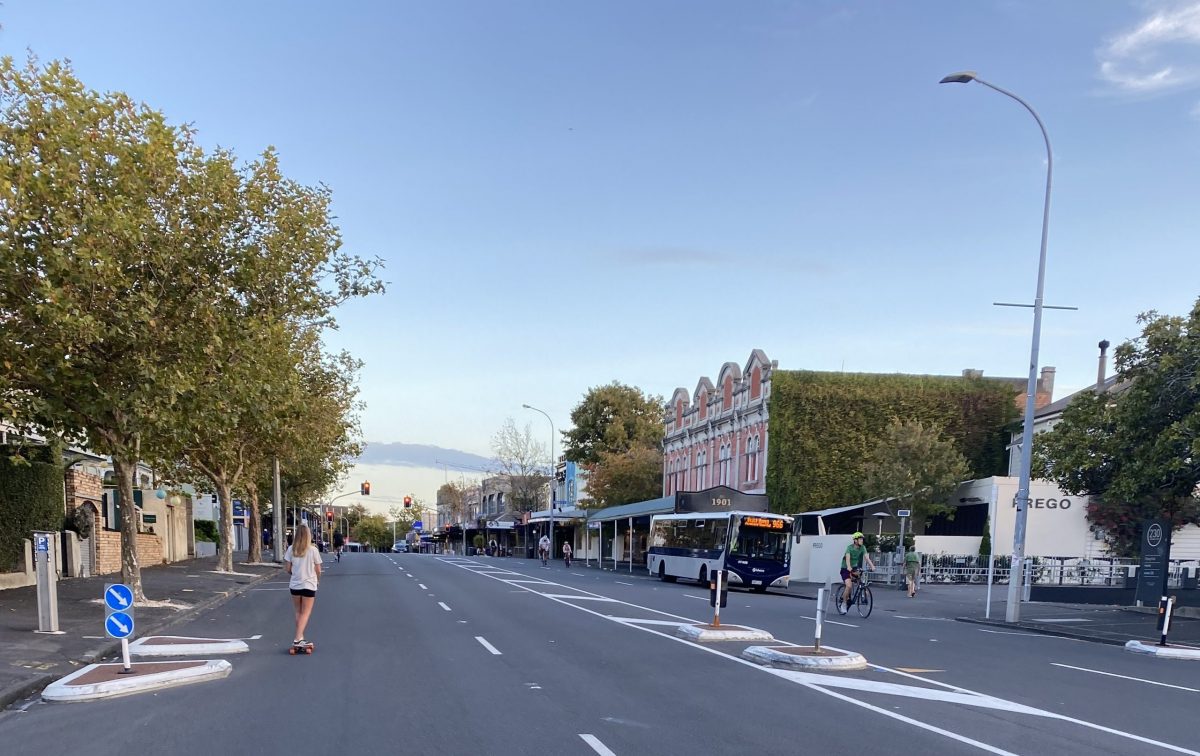Ponsonby News May update
We are in incredibly challenging times dealing with the Covid-19 crisis and there is no doubt the economic downturn is going to continue hitting hard across our businesses and communities. In Auckland, the worst hit industries of Accommodation and Food Services have had a 95% reduction in active employment during the lockdown. Fortunately it does increasingly look like the “go hard, go early” strategy led by the Ministry of Health is working and indications are that we will soon be moving from Alert Level 3 to Level 2.
Although there is a lot of uncertainty regarding the economic recovery we know there won’t be a return to “normal” any time soon. The draft 2020-21 annual budget that was consulted on prior to the lockdown proposed a 3.5% rates increase. We now need a new emergency budget that responds to these extraordinary times.
At the Emergency Committee meeting on 16 April Councillors were unanimous in council taking decisive steps to reduce the pressure on residents and businesses facing economic hardship, while ensuring we can protect and maintain the essential services Aucklanders rely on. There will be another round of consultation including the option of limiting any rise to 2.5%. For the average ratepayer, a 2.5 % increase would be equivalent to an extra $1.35 per week, while a 3.5 % increase would be $1.83 per week.
It is very valid to ask why a rates freeze is not on the table. It comes down to the fact that cutting rates will potentially end up costing ratepayers more, jeopardize council services and projects at a critical time and will slow down Auckland’s recovery.
There is going to be a substantial reduction in non-rates revenue caused by the recession. Development Contributions and fees make up 53% of council’s income. The potential loss of revenue is $350-650m for 20/21 depending on the length of disruption caused by Covid-19.
The credit rating agencies have allocated Auckland Council an AA/Aa2 rating. This enables council to borrow for capital projects at attractive interest rates, for longer time periods, and means there is no shortage of those wishing to invest. Our financial policy is to limit our debt to revenue ratio to 270%, although internally we manage to a 265% ratio to give ourselves a buffer. Lowering income could potentially put this at risk. The outcome would be higher interest rates, reduced funding abilities and shorter timelines for debt renewals. All these add up to very real costs which would be to the detriment of ratepayers, both now and well into the future. A 1% increase in rates equals $17 million in additional income. 3.5% equates to $59 million net. A 1% increase in interest rates equates to around $100 million of additional interest costs. A single notch credit rating downgrade would cost council approximately $15 million every year in additional interest costs. A $59m revenue loss of revenue also means $600m of capital investment in infrastructure that council will be unable to make over 10 years.
Even at a 3.5% rates rise there will be substantial cuts to the infrastructure projects, maintenance and services provided by the Council. This work is already underway with many temp or contracted staff have been given notice. At the same time, council has already driven savings of $270 million in operational expenses. $62 million of additional savings are budgeted for this year. All opportunities to cut spending still need to be reviewed from across the council family. The CEO and senior executives have voluntarily agreed to pay cuts.
The Emergency Committee agreed to consult on targeted measures including suspending the Accommodation Provider Targeted Rate and the broadening of council’s rates postponement policy. We also announced more help to ratepayers and business who may be struggling to pay their rates in the financial year to 30 June – anyone who is facing difficulty can contact council on 09 3010101.
I believe we have taken a principled based approach with a strong commitment to financial prudence and sustainability. An austerity budget based on a zero rates rise will hit our most vulnerable communities hardest and limit council’s ability to play a key role in working with Government to promote economic recovery. I think targeted assistance to ratepayers suffering financial stress makes more sense.
Consultation on the Emergency Budget 20/21 budget is due to start by the end of May for three weeks. The consultation material will provide a clear explanation of what each rating option will mean for council services and infrastructure. Please take the time to review the options and provide feedback.
Published in Ponsonby News on 6 May 2020
Further reading

